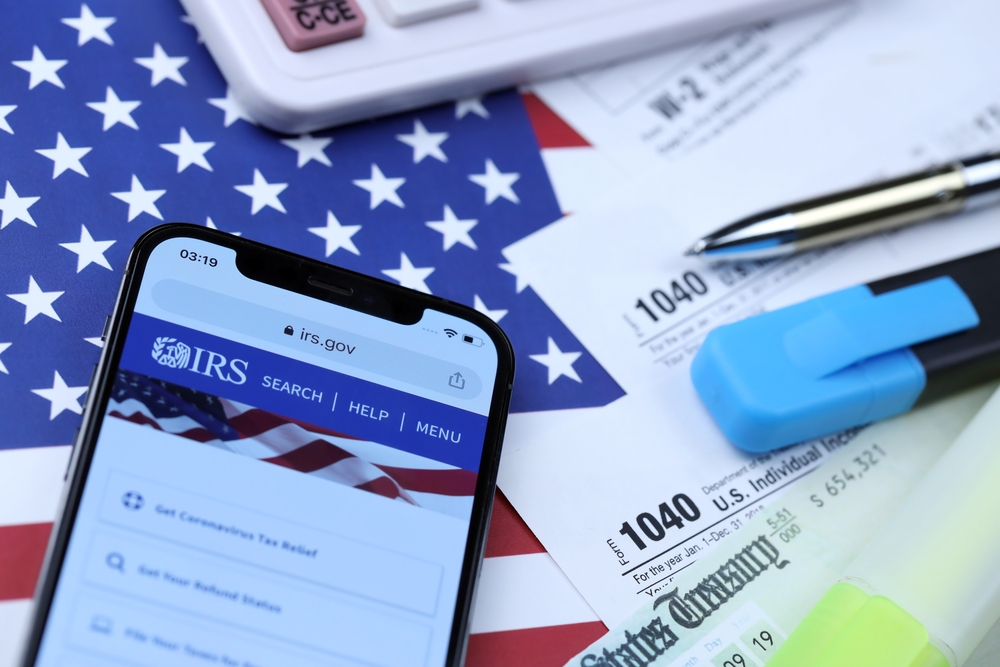Stay Safe This Tax Season: How to Spot and Avoid Scammers

The information presented in this article was sourced from the official IRS.gov website on January 31, 2025.
Scammers are hard at work all year round, but they ramp up their efforts to steal your personal and financial information during tax season. Here's a look at how to spot tax and IRS scams, your rights as a taxpayer, how to report fraud, and more.

Warning Signs of a Tax Scam
Scammers often impersonate the IRS, using pressure tactics to steal money or sensitive information. Be on high alert for the following red flags:
- Too-Good-to-Be-True Offers: Scams and bad tax advice shared on social media may encourage you to lie on tax forms or claim fraudulent credits.
- Threats & Urgent Demands: Scammers may insist you pay immediately or face arrest, deportation, or other penalties. The IRS will never make threats or demand instant payment.
- Fake Website Links: Be cautious of misspelled or suspicious links that could lead you to fraudulent websites instead of IRS.gov.
Learn more about the warning signs of tax scams.
How the IRS Really Contacts You
Understanding how the IRS communicates with taxpayers can help you recognize a scam. The IRS only uses these methods of contact:
- Mail: The IRS typically initiates contact via U.S. mail. You can verify letters by searching for them on IRS.gov.
- Email & Text: The IRS may email or text you, but only with your permission. They will NEVER ask for financial details this way.
- Phone Calls: In certain cases, the IRS may call to discuss your tax situation, but they will NEVER demand payment over the phone.
- In-Person Visits: These are rare. IRS employees will always present official identification.
Get more details about the ways the IRS does contact taxpayers.
What the IRS Will Never Do
Scammers often impersonate IRS agents, but knowing what the IRS does NOT do can help you identify fraud. They will never:
- Demand payment via gift cards, prepaid debit cards, or wire transfers.
- Threaten to involve law enforcement or immigration authorities.
- Take payments or request personal information over social media.
- Send pre-recorded voicemail messages (robocalls).
Protect Yourself from Tax Scams
If you suspect you’re being targeted by a tax scam, follow these steps:
- Never provide personal or financial information to an unexpected caller, email, or website.
- Secure your tax information by setting up an IRS account with multi-factor authentication.
- Get an Identity Protection PIN (IP PIN) to prevent scammers from filing a return in your name.
- Report suspicious activity to the IRS and IdentityTheft.gov.
Get more details for taking these key steps on the official IRS website.
Know Your Taxpayer Rights
Every taxpayer has fundamental rights when dealing with the IRS. These include:
- The Right to Be Informed: You have the right to understand tax laws and IRS decisions regarding your account.
- The Right to Challenge the IRS and Be Heard: You can dispute tax decisions and provide additional documentation.
- The Right to Privacy & Confidentiality: Your tax information must remain private and secure.
- The Right to Representation: You may retain an authorized representative to assist with IRS matters.
Learn more about your rights as a taxpayer.
What to Do if You’re a Victim of a Tax Scam
If you’ve lost money or personal information to a tax scam, take immediate action:
- Stop all contact with the scammer.
- Report identity theft to IdentityTheft.gov and notify the IRS.
- Check your credit report for suspicious activity.
- File a report with your financial institution to prevent unauthorized transactions. 3Rivers members can do so by following the steps found on this page.
Stay Vigilant & Report Tax Scams
If you suspect fraudulent activity, always report it to the IRS. This includes:
- IRS impersonation scams
- Stolen Social Security Numbers or Tax Identification Numbers
- Tax return preparer fraud
- Business or individual tax fraud
By staying informed and cautious, you can protect yourself and your financial security. At 3Rivers, we're committed to helping our members stay safe from fraud and scams.
- Check out our Fraud Resource Center for additional information about types of fraud, how to submit disputes, and more.
- Use our digital banking to set up account alerts and keep a close eye on your finances.
- Utilize Credit Sense, our free credit monitoring tool, to receive credit report updates and spot suspicious activity right away.
Visit the official IRS website for the most up-to-date and accurate information regarding tax scams. Stay safe, readers!